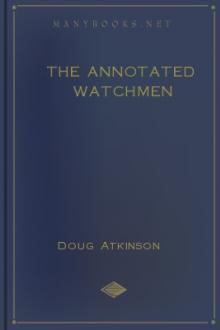The House of Arden, E. Nesbit [best historical fiction books of all time TXT] 📗

- Author: E. Nesbit
Book online «The House of Arden, E. Nesbit [best historical fiction books of all time TXT] 📗». Author E. Nesbit
He was roused by a hand on his shoulder and a voice calling his name.
Next moment he was in the arms of Aunt Edith, or as much in her arms as he could be with the window-bars between them.
When he had told her where Elfrida was, and where the room-key was, which took some time, he began to cry again—for he did not quite see, even now, how he was to be got out.
“Now don’t be a dear silly,” said Aunt Edith. “If we can’t get you out any other way I’ll run and fetch a locksmith. But look what I found right in the middle of the path as I came up from the station.”
It was a key. And tied to it was an ivory label, and on the label were written the words, “Parlour door, Arden.”
“You might try it,” she said.
He did try it. And it fitted. And he unlocked the parlour door and then the front door, so that Aunt Edith could come in.
And together they got the kitchen steps and found the secret spring and opened the panel, and got out the dusty Elfrida. And then Aunt Edith lighted the kitchen fire and boiled the kettle; they had tea, which everyone wanted very badly indeed. And Aunt Edith had brought little cakes for tea with pink icing on them, very soft inside with apricot jam. And she had come to stay over Sunday.
She was as much excited as the children over the secret panel, and after tea (when Edred had fetched Emily back from the wild-goose chase for a parcel at the station, on which she was still engaged), the aunt and the niece and the nephew explored the secret stair and the secret chamber thoroughly.
“What a wonderful lot of pigeons’ feathers!” said Aunt Edith; “they must have been piling up here for years and years.”
“It was lucky, you finding that key,” said Edred. “I wonder who dropped it. Where’s the other one, Elf?”
“I don’t know,” said Elfrida truthfully, “it isn’t in my pocket now.”
And though Edred and Aunt Edith searched every corner of the secret hiding-place they never found that key.
Elfrida alone knows that she gave it to the Mouldiwarp. And as Mrs. Honeysett declared that there had never been a parlour key with a label on it in her time it certainly does seem as though the Mole must have put the key he got from Elfrida on the path for Aunt Edith to find, after carefully labelling it to prevent mistakes. How the Mole got the label is another question, but I really think that finding a label for a key is quite a simple thing to do—I have done it myself. Whereas making a clock-face of white pigeon feathers is very difficult indeed—and a thing that I have never been able to do. And as for making that clock-face the means of persuading time to go fast or slow, just as one wishes—well, I don’t suppose even you could do that.
Elfrida found it rather a relief to go back to the ordinary world, where magic moles did not upset the clock—a world made pleasant by nice aunts and the old delightful games that delight ordinary people. Games such as “Hunt the thimble,” “What is my thought like,” and “Proverbs.” The three had a delightful weekend, and Aunt Edith told them all about the lodgers and the seaside house, which already seemed very long ago and far away. On Sunday evening, as they walked home from Arden Church, where they had tried to attend to the service, and not to look too much at the tombs and monuments of dead-and-gone Ardens that lined the chancel, the three sat down on Arden Knoll, and Aunt Edith explained things a little to them. She told them much more than they could understand about wills, and trustees, and incomes, but they were honoured by her confidence, and pleased by the fact that she seemed to think they could understand such grown-up kind of things. And the thing that remained on their minds after the talk, like a ship cast up by a high tide, was this: that Arden Castle was theirs, and that there was very little money to “keep it up” with. So that everyone must be very careful, and no one must be at all extravagant. And Aunt Edith was going back to the world of lawyers, and wills, and trustees, early on Monday morning, and they must be very good children, and not bother Mrs. Honeysett, and never, never lock themselves in and hide the key in safe places.
All this remained, as the lasting result of the pleasant talk on the downs in the softly lessening light.
And another thing remained, which Edred put into words as the two children walked back from the station, where they had seen Aunt Edith into the train and waved their goodbyes to her.
“It is very important indeed,” he said, “for us to find the treasure. Then we could ‘keep up’ the Castle without any bother. We must have it built up again first, of course, and then we’ll keep it up. And we won’t have any old clocks and not keeping together, this time. We’ll both of us go and find the attic the minute our quarrel’s three days old, and we’ll ask the Mouldiwarp to send us to a time when we can really see the treasure with our own eyes. I do think that’s a good idea, don’t you?” he asked, with modest pride.
“Very,” Elfrida said. “And I say, Edred, I





Comments (0)